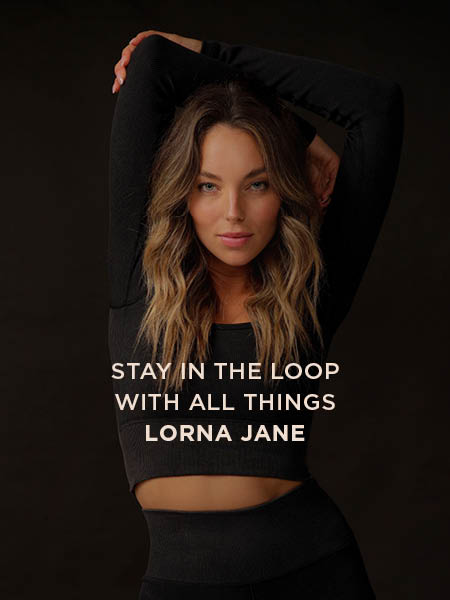
Subscribe Now and get our best content in your inbox
- Never Miss an Article
- Member-Only Discounts
- Inside Scoop on The Latest Drops
ACTIVE LIVING | NOURISH
Mindful eating isn’t about what you eat—it’s about how you eat it.
We caught up with Amy Molloy to get the lowdown on her eating habits and mindfulness.
I was at a wellness retreat in the Indian Himalayas, when I was first introduced to the concept of mindful eating. This was over 10 years ago, before meditation had even gone mainstream, so the thought of eating ‘mindfully’ was not on my radar.
At the time, I thought I had recovered from an eating disorder (spoiler alert: I hadn’t!). I had become an expert at ignoring my body’s cues, including basic sensations like hunger and tiredness. When I had my first wellness check-in with the retreat’s Ayurvedic doctor, he told me bluntly: ‘You need to start listening to your body.’
So began my lifelong exploration of mindful eating—a practise, which transformed my eating habits, accelerated my recovery and continues to be a pillar of my wellness.
If you haven’t heard of mindful eating, it’s quite simple in theory: you pay attention to the experience of eating, including food preparation, mealtimes and even your digestion. Easy, right? Well, let me ask you a question: when was the last time you just ate a meal? No scrolling, no streaming, no typing or even talking to your housemates?
If you can’t remember, you’re not alone.
We all love to multi-task whilst we eat. The problem is, it’s not great for our bodies. When we’re distracted, we tend to over-eat or make unhealthy choices. On the flip side, mindful eating has been shown to have plenty of benefits, including cleaner eating, better body image and, overall, less stress and anxiety.
The good news is, you don’t have to sit on a meditation cushion for every meal. Here’s three easy ways to be more present for each mouthful.
When I was in my actual recovery from my eating disorder, (not my faux recovery!), this was a mantra I repeated to myself constantly. It might sound simple, but really try it. Feed your body when it truly craves food for sustenance (which is different to emotional eating), and stop before you feel uncomfortable.
Personally, I discovered that I was hungry way more often, but I didn’t need as much food at each sitting. It lines up with the research on mindful eating: people tend to eat less at mealtimes when they’re more present. They also enjoyed what they ate more.
But, isn’t the point of snacking that you can eat on the move? Not really! A snack is generally defined as any food eaten between main meals. And, research shows that, if we’re moving around when we’re eat, we’re likely to consume more than we really need to.
Notice if you enjoy your food more (or less) when you sit down for your snacks. Even if you’re grabbing a protein shake, really pay attention. The Buddhist monk, Thich Nhat Hanh encouraged people to try eating an orange mindfully. With each segment, focus fully on the texture, the taste, the colours. When you do this, he said, you can’t feel anxious or worry. The orange is all you think about in that moment.
If I was writing an idealistic article about mindful eating, I’d be telling you to eat every meal in silence without any multi-tasking, music or even companionship. But, we live in the real world. I have three young kids and meal times are a blur of fighting, floor food and episodes of Paw Patrol.
Sometimes, the best you can do is to take a breath. If it’s one of those days when you feel anxiety in your belly, don’t just layer food on top of it. Put one hand on your stomach and one hand on your heart, breathe in deeply and exhale slowly. Try to take a moment to feel grateful for the food in front of you and how it got there.
Sometimes, mindful eating means taking away just one thing. Play a podcast but don’t pick up your phone. Eat at your desk, but rest comfortably in your chair. If you’re eating lunch on the bus, stop scrolling on Instagram and look at your sandwich.
When I was recovering from my eating disorder, I used to watch telly whilst reading a magazine, whilst playing music, because I was so desperate for distraction. I knew I had to finish a meal, before my inner demons noticed.
Now that I’m a decade into recovery, it’s a privilege to just be able to eat. I don’t want to miss it!
Amy Molloy, is a journalist, self-help author, mindfulness coach and podcaster.

Shopping from United States?
Go to United States siteDROP A HINT